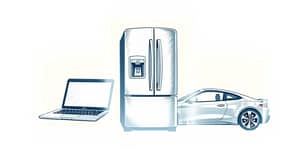
Selecting the right business credit card can revolutionize the way your organization handles spending. When combined with advanced expense reporting features, these cards empower finance teams and employees alike.
Business credit cards are designed specifically for small businesses, entrepreneurs, and large corporations to separate business and personal spending while unlocking customized benefits and higher credit limits. Beyond simple purchase power, they serve as vital tools for managing cash flow, streamlining accounting, and building a strong business credit profile for future financing.
With tailored expense reporting, finance teams gain real-time visibility into spending, reduce manual work, and ensure compliance with internal policies and tax regulations.
Advanced expense reporting platforms provide dynamic dashboards and analytics that highlight spending trends, budget variances, and potential policy violations. Administrators can drill down into cost centers, projects, or employee-level data, identifying unauthorized charges or opportunities for cost optimization.
With end-to-end compliance monitoring, organizations mitigate risk and ensure all expenses adhere to internal and external regulations, from VAT filing to audit readiness.
Ease of use is critical for both cardholders and finance teams. Employees benefit from a streamlined card request process, options for virtual or physical cards, and mobile apps that allow receipt uploads instantly. Finance teams, in turn, spend less time on manual matching and chasing missing documentation.
By focusing on an intuitive interface and clear workflows, companies achieve high adoption rates and consistent expense policy adherence across the organization.
Businesses that switch to automated expense reporting often see dramatic efficiency gains. Manual expense entry, which can take up to 20 minutes per invoice, is reduced to mere seconds.
Real-time data access also accelerates tax recoveries, with case studies reporting quarterly VAT savings of up to £240,000. Moreover, enhanced visibility cuts down on expense fraud and eliminates lost receipts, effectively reducing administrative costs and improving cash flow forecasting.
To apply for a business credit card, prepare information about your business, including name, address, years in operation, tax ID (EIN), industry category, employee count, and annual revenue. Card issuers also require owner details such as name, Social Security Number, and personal credit history.
Mobile-first platforms and virtual cards are rapidly becoming the norm, enabling project-specific or time-limited spending controls. Artificial intelligence is also being integrated for automated expense categorization and anomaly detection, further reducing manual work and enhancing policy enforcement.
Choosing a business credit card with customized expense reporting capabilities delivers significant advantages: reduced administrative burden, greater visibility, cost savings, and improved compliance. Assess providers based on your organization’s size, integration needs, and control preferences.
By following best practices and embracing emerging technologies, your business can simplify expense workflows, safeguard finances, and unlock valuable rewards.
References













